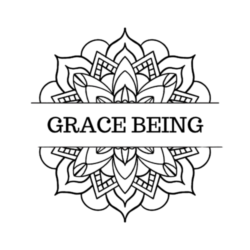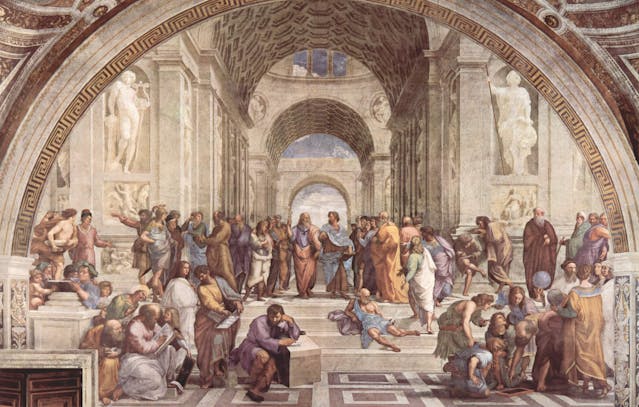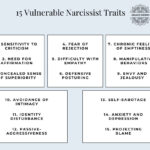Carl Jung & Religion: Exploring Jung’s Perspective on God
A few weeks into my deep dive into Carl Jung’s work and theories, I found myself contemplating the topic of Carl Jung and religion.
Carl Gustav Jung, known for his break with Sigmund Freud over the reduction of human behavior to sexual libido, saw the spiritual dimension as central to understanding the human psyche.
This Swiss psychiatrist’s work suggests he wasn’t strictly religious in a conventional sense. This prompts the question: was Carl Jung religious, and more specifically, was he Christian or Jewish?
Jung’s views on God and deep dive into Christianity’s symbolic realms show a broad spiritual engagement. His appreciation for Eastern philosophies and Jewish mysticism goes beyond a single religious identity.
This article explores Jung’s psychospiritual approach, focusing on the intersection of his theories with religious concepts. It examines how the collective unconscious and archetypes influence modern spirituality and psychology.
Was Carl Jung Religious? Understanding The Man Behind the Theory
Carl Jung, a towering figure in the realm of psychology, embarked on a journey that would redefine our understanding of the human mind. Born in Switzerland in 1875 to a pastor father, Jung was enveloped in the Christian tradition from his earliest days.
Yet, his domestic life was anything but ordinary. With a father grappling with faith and a mother drawn to spiritualism, Jung’s childhood was a crucible of contrasting spiritual influences.
This complex backdrop, combined with Jung’s own mystical dreams and visions, became the fertile ground for his future explorations into the psyche.
Unlike the prevailing Freudian focus on sexual drives, Jung dared to venture beyond, probing the symbolic and spiritual dimensions of human experience.
His upbringing, steeped in a mix of devout Christianity and open spiritual curiosity, set the stage for his later work.
Jung was not content to accept religious experiences at face value. Instead, he delved into their symbolic underpinnings, seeking to uncover the universal truths hidden within traditional Christian narratives.
This early immersion in a world where spirituality was both a comfort and a question mark led Jung to develop theories that bridged the gap between psychology and religion.
His work, a testament to the belief that understanding the human psyche requires acknowledging its spiritual cravings, laid the cornerstone for a new paradigm in psychological theory. This is known as analytical psychology or Jungian psychology.
Carl Jung’s View on Christianity
Carl Jung’s exploration of Christianity was not just an academic pursuit; it was a deep dive into the symbolic and psychological dimensions of this major world religion.
Unlike his contemporary, Sigmund Freud, who often viewed religion through a lens of skepticism, Jung approached Christianity with an eye for its rich symbolic tapestry, seeing it as a vital reservoir of collective human experiences and archetypal patterns.
For Jung, Christianity was more than a set of dogmatic beliefs. It was a living, breathing narrative filled with symbols that spoke to the deepest layers of the human psyche.
He was particularly fascinated by the figure of Christ, whom he saw as the embodiment of the “Self” archetype, representing the potential for wholeness and integration within every individual.
This perspective allowed Jung to appreciate Christian motifs not just for their theological significance but for their role in the individuation process – the journey toward psychological wholeness and self-realization.
Jung’s view on Christianity also extended to its rituals and sacraments, which he interpreted as important psychological acts that could lead to personal transformation.
He saw rites such as baptism and the Eucharist as symbolic enactments of death, rebirth, and the integration of the shadow – the unacknowledged, often darker aspects of the self.
However, Jung also critiqued Christianity for what he perceived as its one-sided emphasis on light and goodness, which could lead to the neglect of the shadow.
He advocated for a more balanced approach that also acknowledged and integrated the darker aspects of human nature.
In summary, Jung’s view on Christianity was characterized by:
- Symbolic Interpretation: Viewing Christian narratives and figures as symbols of universal psychological processes.
- Christ as the ‘Self’ Archetype: Seeing Christ as a symbol of wholeness and integration.
- Rituals as Psychological Acts: Interpreting Christian sacraments as transformative psychological events.
- Integration of the Shadow: Emphasizing the need to acknowledge and integrate darker aspects of the self for psychological balance. This can be done through shadow work prompts, journaling, and working with a Jungian analyst.
Jung’s Analysis of Religious Symbols Across Cultures
Carl Jung’s exploration of religious symbols was groundbreaking. He delved into motifs spanning diverse traditions, uncovering universal themes within the collective unconscious. Jung’s work illuminated how symbols like the mandala, emblematic of the self and psychic wholeness, recur across cultures, from Hinduism to Christianity.
He also studied the hero’s journey, a narrative arc of struggle, triumph, and transformation found in myths worldwide. This archetype resonates deeply with personal growth and self-discovery, mirroring the individuation process in Jungian psychology.
Another key motif Jung analyzed was rebirth. Found in stories from the Phoenix in ancient mythology to the resurrection of Christ, it symbolizes the cycle of death and renewal, reflecting the transformative potential of the human psyche.
Jung’s comparative approach bridged gaps between religions, showing how similar symbols and narratives address fundamental human experiences and quests for meaning. His work suggests that despite outward differences, there’s a shared spiritual language at humanity’s core.
This profound unity is precisely why I fell in love with Jung’s work and his view on religion. Seeing similarities between different religions and cultures pointing to universal truths was enlightening.
Jung’s explanations brought clarity, making everything make sense. His insights encourage a deeper appreciation for the varied expressions of the divine, fostering a sense of unity and understanding.
Jung’s Perspective on God and the Divine
Carl Jung’s exploration of spirituality delves deep into the symbolic nature of God and the divine. His perspective offers a unique lens to view the intersection of psychology and spirituality, particularly in how he perceived God as more than a deity in traditional religious terms.
Jung’s nuanced views can be summarized as follows:
1. Symbolic Representation
Jung saw God and divine figures as symbolic, representing deeper psychological truths and human experiences. This approach transcends literal interpretations, suggesting a more profound, universal connection to the divine.
2. Manifestation of the Psyche
For Jung, the concept of God emerged from the collective unconscious, reflecting the archetypes shared across cultures. This aligns with inquiries into whether Carl Jung’s religious beliefs influenced his psychological theories.
3. Personal and Collective Experience
Jung differentiated between personal God-images and the collective perception of God. This distinction addresses questions on whether Carl Jung was a Christian by emphasizing individual spiritual experiences over dogmatic affiliations.
4. Transformation and Individuation
Jung associated the divine with the process of individuation, the journey towards self-realization and wholeness. This process is akin to spiritual awakening, where one encounters and integrates various aspects of the psyche, including the shadow and the anima/animus.
Jung’s engagement with Christian symbols and narratives, alongside his appreciation for other religious traditions, showcases his broad spiritual engagement and multifaceted concepts that transcend conventional religious boundaries.
Carl Jung & Religion: Integrating Eastern Philosophy and Jewish Mysticism
Carl Jung’s journey into the depths of the psyche wasn’t confined to Western thought. His exploration included Eastern philosophies and Jewish mysticism, enriching his understanding of the collective unconscious and the divine.
Let’s have a look at Carl Jung’s religious and philosophical influences:
- Buddhism and Taoism: Jung found in these Eastern traditions concepts that resonated with his own ideas. Ideas like mindfulness and the Tao mirrored his views on the psyche’s balance and the self’s journey.
- Jewish Mysticism – Kabbalah: Jung was fascinated by the Kabbalah’s intricate symbolism. He saw parallels between its mystical concepts and his own theories of the collective conscious and unconscious.
- Spirituality and Psychology: Jung’s theories foster a dialogue between these realms. They suggest that understanding our inner world can lead to spiritual growth and psychological well-being.
Jung’s engagement with Eastern philosophy and Jewish mysticism showcases his belief in the universality of human experiences. This approach underlines the interconnectedness of all traditions in exploring the human soul.
The Impact of Jung’s Theories on Interfaith Dialogue
Carl Jung’s theories have significantly influenced interfaith dialogue, offering a unique psychological perspective on religious diversity. His work underscores the shared psychological roots of various religious traditions, fostering a deeper mutual understanding.
Jung’s concept of the collective unconscious reveals common archetypes across faiths. This highlights a shared spiritual heritage, despite surface differences. It encourages dialogue based on shared human experiences rather than doctrinal divides.
Jungian psychology emphasizes the symbolic nature of religious practices. This approach helps participants in interfaith discussions see rituals from other traditions as expressions of universal psychological themes. It cultivates empathy and respect.
Carl Jung and Religion isn’t just an academic topic. It’s a lens through which we can view the rich tapestry of world religions. Jung’s insights into the psyche’s role in religious experience bridge gaps between faiths, promoting a more inclusive understanding.
Jung’s work also suggests that exploring one’s own religious symbols can lead to personal growth. This introspection can enhance interfaith dialogues, as participants bring deeper self-awareness to the conversation.
By emphasizing the psychological underpinnings of religious beliefs, Jungian analysis offers a neutral ground for dialogue. It moves the focus from theological differences to shared psychological experiences.
Jung’s Influence on Contemporary Spiritual Movements
Carl Jung’s profound insights have transcended traditional religious boundaries, weaving their way into the fabric of modern spiritual practices. Let’s explore the enduring legacy of Jung’s work, illuminating its impact on the evolution of spirituality in contemporary society.
Synchronicity and Modern Spirituality
Jung’s concept of synchronicity, or meaningful coincidences, has found a resonant echo in modern spirituality, challenging our understanding of chance and guiding individuals toward deeper self-awareness and connectivity.
The Individuation Process in Personal Development
The journey of individuation, a core Jungian principle, has been embraced by various spiritual movements as a path to achieving personal wholeness, highlighting its transformative potential beyond the confines of traditional psychotherapy.
Integrating the Shadow in Holistic Practices
The practice of shadow integration, fundamental to Jungian psychology, has been adopted by holistic healing and spiritual practices, emphasizing the importance of embracing all aspects of the self for true spiritual growth.
Reassessing Religion through a Jungian Lens
Indeed, Carl Jung’s theories present a transformative perspective on religion, masterfully blending the realms of spirituality and psychology. This is precisely why they resonate so deeply with me!
His insights into the human psyche provide a fresh lens through which to view religious beliefs and practices, especially within Christianity.
Here’s a quick recap on Carl Jung’s view on religion:
- Carl Jung and Religion: Jung saw religious symbols and rituals as expressions of deep psychological truths. He believed these symbols could lead to personal transformation and growth.
- Spirituality in Psychotherapy: Jung’s ideas have been integrated into therapeutic practices, acknowledging the role of spiritual well-being in mental health. Jungian Analysts often explore clients’ spiritual beliefs, drawing on Jungian concepts.
- Contemporary Spiritual Practices: Jung’s influence extends to modern spirituality, where his concepts of the collective unconscious and archetypes enrich practices beyond traditional religious confines.
- Jung and Christianity: Jung’s engagement with Christian symbolism was profound. He viewed Christ as an archetype of the Self, representing the potential for wholeness within each individual.
- Personal and Collective Growth: Jung believed that exploring religious and spiritual symbols could lead to both personal and collective development. This journey involves confronting and integrating the shadow aspects of oneself (our dark side or rejected aspects of ourselves).
Through a Jungian lens, religion becomes more than a set of doctrines; it is a dynamic pathway to deeper self-understanding and psychological health.
Jung’s work encourages a reassessment of religious traditions, inviting a more inclusive and psychologically nuanced exploration of spirituality.
For more insights on Carl Jung’s work, explore these related resources:
FAQs on Carl Jung and Religion
Jung was not religious in the traditional sense but deeply interested in spirituality and the psychological underpinnings of religious experiences.
While Jung was raised in a Christian environment, he did not identify strictly as Christian, preferring a broader exploration of spiritual concepts.
Carl Jung viewed religion as a vital expression of the human psyche’s collective unconscious, rich in symbolic meaning and essential for psychological health.
Jung found Christianity rich in symbolic imagery, seeing figures like Christ as archetypes representing aspects of the Self and the process of individuation.
Carl Jung was not Jewish; he was born and raised in Switzerland in a Christian environment, but his work extensively explored various religious traditions, including Jewish mysticism.






